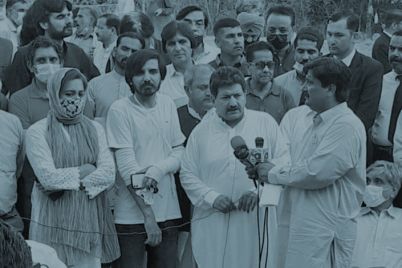The Pakistani military has advanced their business interests and its officers have amassed unaccounted for wealth behind the smokescreen of the war on terror. If the protesting popular voices are growing in number and becoming louder with the passage of time, fewer, and fewer Pakistanis are ready to support the Pakistani military. The Pakistani military was never politically weaker since it became involved in politics soon after the Partition in 1947 but the political forces are still not able to push the proverbial falling wall.
AV Staff Writer
When former Pakistani prime minister, Shahid Khaqan Abbasi, tweeted an apparently innocent question — which is the most corrupt [government] department in Pakistan? –, he probably did not expect it would unleash popular anti-military sentiments on Twitter. Most respondents named the Pakistani military as the most corrupt department of the government. A few months ago, such reaction would have surprised – even shocked – the readers. However, more and more people have been turning to social media to show their anger on the Pakistani military’s involvement in politics and civil administration.

Mubbashir Malik was the first one to respond by saying that unknown people will come in a black truck and forcibly abduct him if he named the most corrupt department – a clear reference to enforced abductions by the Pakistani military. Then he referred to the black law that punishes you with two-year imprisonment and a fine of Rs500,000 for criticizing the Pakistani military, but that is only if he were lucky enough. We never hear again about most people who are forcibly abducted by the Pakistani military. They are tortured, killed and buried or dumped at unknown places. Shahzad Chaudhary also referred to the Pakistani military by saying that the most corrupt government department in Pakistan is the one that cannot be named.
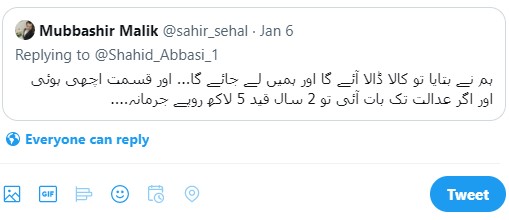
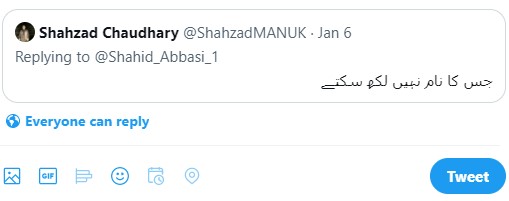
Rafiq @RafiqRafiq65 also named the Pakistan Army as the most corrupt government department in Pakistan – followed by judiciary, media, and clergy. Judiciary, media and clergy are commonly thought to be military’s allies and partners-in-crime. Azeem Shad @PappuPlus refers to the ISPR favorite line “The one who is awake when we sleep at night” to refer to the military. Azizi @AzizReh80044126 reminds us that all the government departments are now headed by a military officer, and they are all equally corrupt. Abdul @rocanova11 names the khalai makhlook to refer to the military.
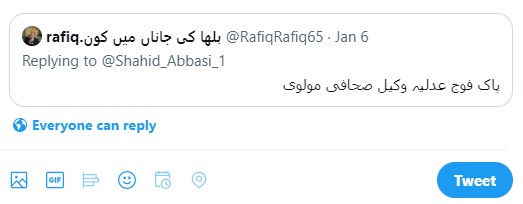
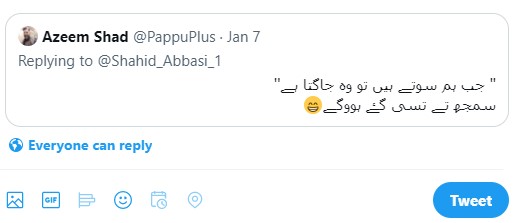


As the space for free speech shrinks in Pakistan, people take it to social media to express their anger and feelings on the role of the Pakistani military. Every day there is an event or tweet that ignites popular anger against Pakistani military. The anger against the military in response to the former prime minister, Shahid Khaqan Abbasi, is not unusual. A day after Mr Abbasi’s tweet when 22 people died under heavy snowfall in the tourist hill station outside Islamabad, an overwhelming number of Pakistani Twitter accounts blamed the Pakistan Army for the tragedy. Under normal circumstances the civil administration should have been blamed. But the Pakistani military is so much involved with all kinds of administration at the micro level that all accusing fingers were pointed out at them. As soon as the news of deaths was announced, Bilal Ghauri tweeted a photograph of Lt. Gen Akhtar Nawaz Satti with the question what his department had done to avoid such a human tragedy. Lt. Gen Satti is the chairman of National Disaster Management Authority (NDMA). One Twitter account after another questioned what the NDMA was doing by referring to the defense budget of Rs1200 billion.
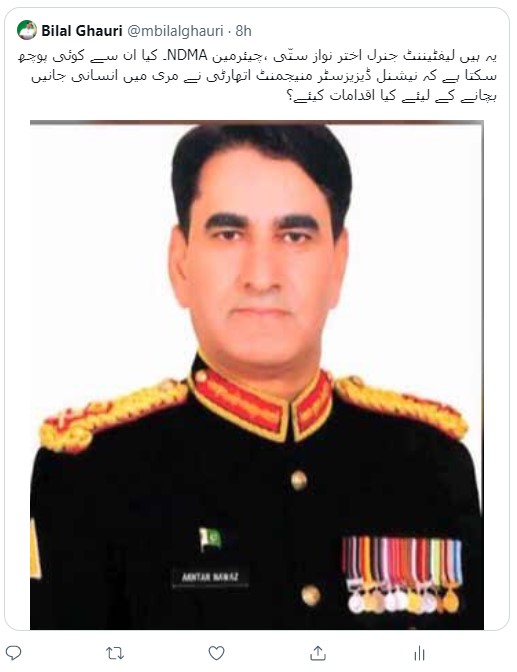
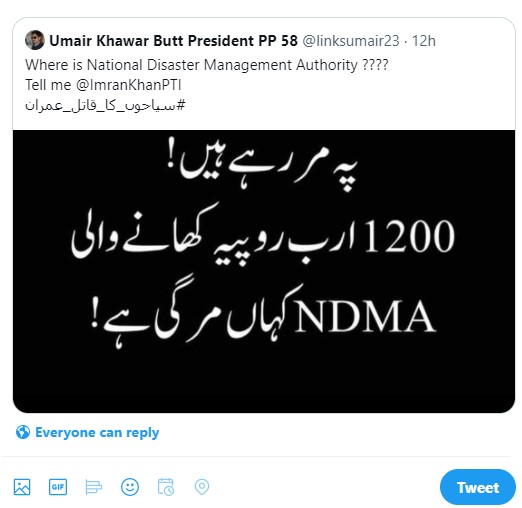
Murree is a beautiful hilly area most of which has been acquired by the Pakistan Army for its officers’ touristic and residential purposes. The area under the military control is surrounded by the barbed wires and the civilians are not allowed to enter the military area although it does not serve any defense purpose. Voice Less @VoiceLess_94 tweeted a picture of the wired area and wrote, “This wall is symbol of two-nation theory, the one is pak army and other is bloody civilians. Bloody civilians is freezing from cold and other enjoying on our money.”

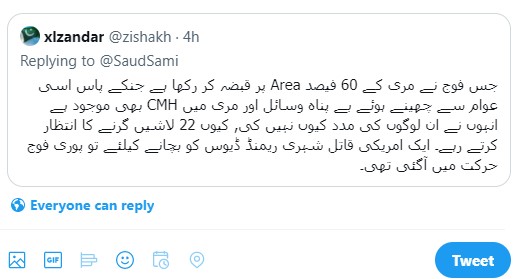
The Pakistani military no longer enjoys the status of a sacred cow it used to enjoy only until a few years ago. The draconian powers it assumed in the name of the war on terror are coming back to haunt it– and the country — now. The Pakistani military has advanced their business interests and its officers have amassed unaccounted for wealth behind the smokescreen of the war on terror. If the protesting popular voices are growing in number and becoming louder with the passage of time, fewer, and fewer Pakistanis are ready to support the Pakistani military. The Pakistani military was never politically weaker since it became involved in politics soon after the Partition in 1947 but the political forces are still not able to push the proverbial falling wall. Unless the political parties provide a viable alternative to the military instead of striving to be on the same page as the military, the country may soon descend into unimaginable chaos. Follow us on Twitter @AlterVoices



